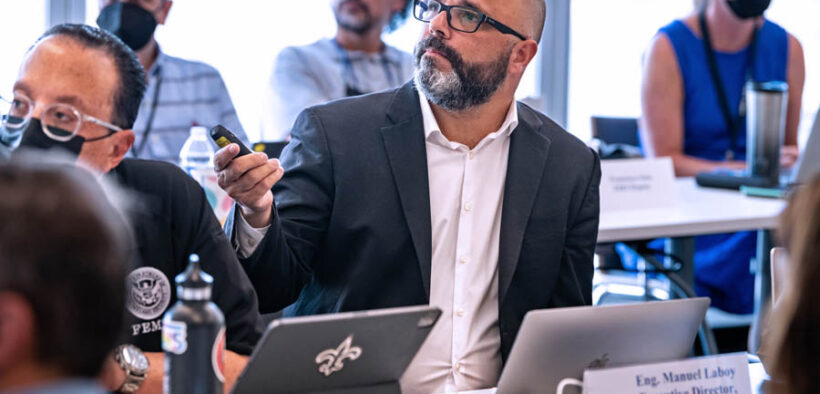Puerto Rico’s reconstruction shows progress, says COR3 director

Amid the release of a report by the U.S. Government Accountability Office (GAO) offering recommendations on Puerto Rico’s recovery since the 2017 hurricanes and the 2020 earthquakes that struck the southwest region, Manuel Laboy, executive director of the island’s Central Office for Recovery, Reconstruction and Resiliency (COR3), stated that reconstruction with Federal Emergency Management Agency (FEMA) funds is progressing, despite challenges in the construction sector on local, federal and global levels.
A report earlier this week by News is my Business highlighted FEMA’s suggested actions on persistent issues, noting in the 56-page document that there is a “substantial amount of permanent recovery work remaining.”
Laboy remarked that the reconstruction effort’s “numbers show the significant progress made when compared to December 2020.”
“We are on the right track with disbursements and projects in construction or completed stages,” he said. “To say otherwise demonstrates a lack of understanding of the issue. In fact, when we make an equitable comparison, we are more advanced in the progress of our reconstruction compared to how other places such as Louisiana and the U.S. Virgin Islands were.
“The GAO report itself,” he continued, “acknowledges the great work that this administration has been doing since 2021. Currently, COR3 has the capacity and internal controls to ensure compliance and transparency in its processes. Due to these controls, COR3 managed to reduce the potential for improper payments between 2018 and 2020 from 9% to 1%, as recognized by the federal document.”
Laboy also highlighted that despite FEMA’s reimbursement-based disbursement, Gov. Pedro Pierluisi’s administration secured authorization for the Working Capital Advance (WCA) pilot program in May 2022. This program allows government agencies, municipalities and nonprofit entities to receive up to 75% of the funds in three phases for their permanent construction and risk mitigation projects, not only for Hurricane Maria but also for the earthquakes and Hurricane Fiona in 2022.
WCA advances increased disbursements from $153 million in December 2020 to nearly $2.39 billion in February 2024.
Laboy said that “if we add Fiona’s permanent works,” the total disbursed rises to nearly $2.56 billion for permanent projects. These numbers do not include FEMA funds already disbursed for emergency work from 2017 to 2023 totaling another $6 billion, nor the funds disbursed by FEMA directly to individuals during Hurricane Irma, Hurricane Maria, the 2020 earthquakes, the COVID-19 pandemic and Hurricane Fiona, the official added.
The advanced funds, along with assistance and training efforts coordinated by COR3 and FEMA, propelled the development of permanent and resilience works.
“As I have said on other occasions, we cannot forget about the fact that the reconstruction of Puerto Rico with FEMA funds began in 2021,” Laboy said. “From 500 ongoing works in December 2020, we now have more than 8,000 works in progress, including nearly 3,000 works under construction, such as repairs to generation plants and substations, pole and luminaire replacements, water and sanitation plants, dredging of the Carraízo Dam, a new health center at the island-municipality of Vieques, roads and bridges, hospitals and schools, sports facilities, as well as recreational facilities, among others. From 81 completed works in December 2020, we now have over 2,400 works.”
The COR3 chief also said the GAO report supports the Puerto Rican government’s claims before the U.S. Congress regarding inflation impacts on infrastructure projects.
Despite challenges with the FEMA Accelerated Awards Strategy (FAASt), “the Pierluisi administration has managed to secure billions” for the development of the reconstruction of energy and sewer systems, as well as repairs to schools and public housing complexes.
“In light of this, stating that the government of Puerto Rico has not taken the necessary steps to access the funds allocated through FAASt is incorrect,” Laboy assured. “All necessary actions have been taken to access these funding allocations. From $0 obligated funds under the mentioned accelerated strategy that only applies to Puerto Rico, to more than $8 billion and 545 project group approved in three years. We continue to focus on fulfilling Gov. Pierluisi’s public policy of advancing reconstruction swiftly and in compliance with applicable regulations.”














